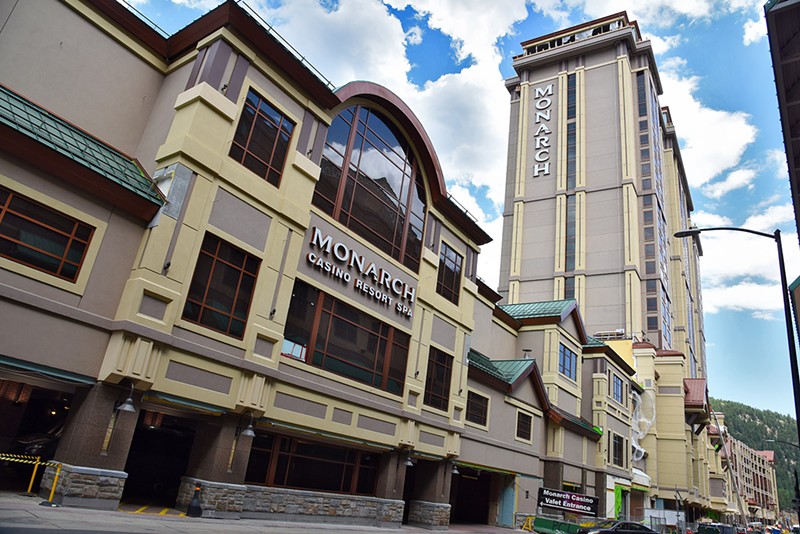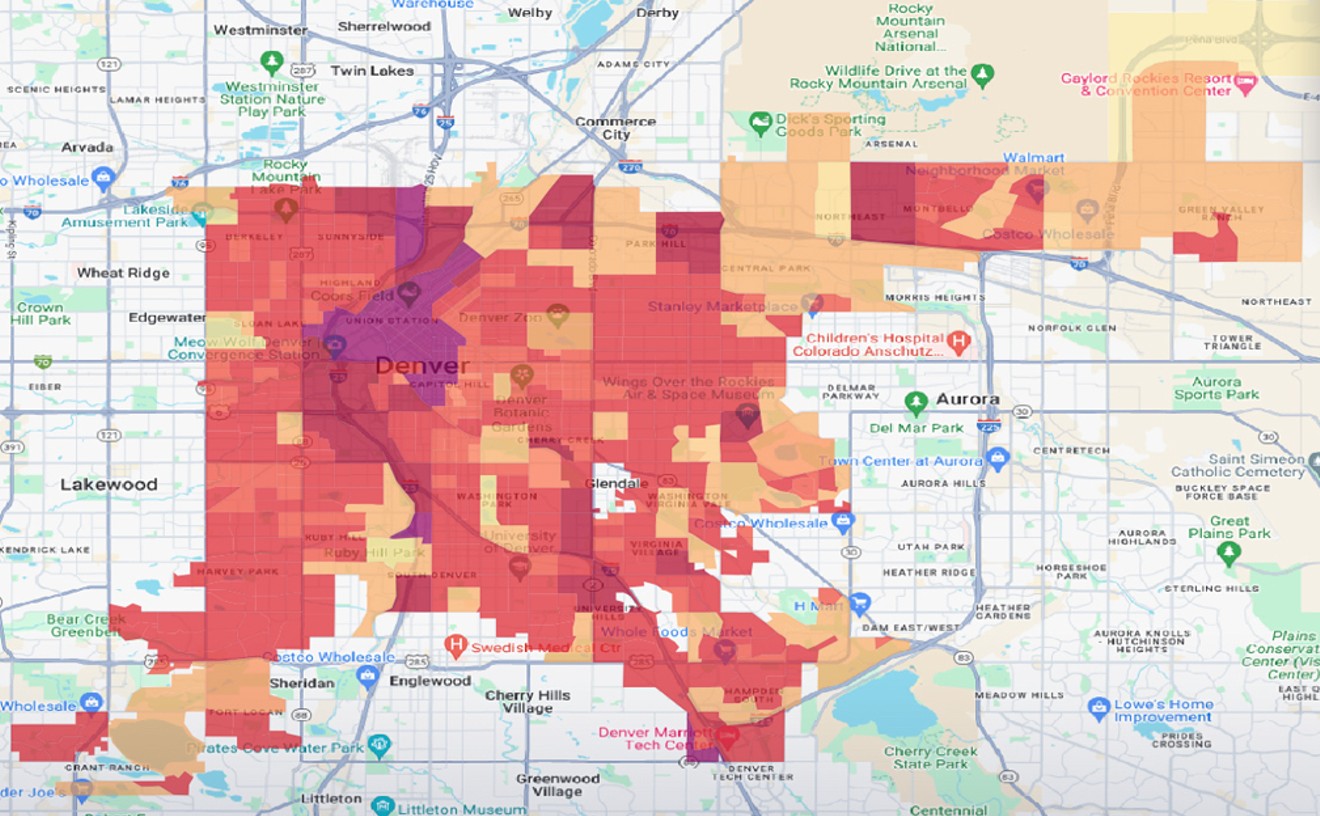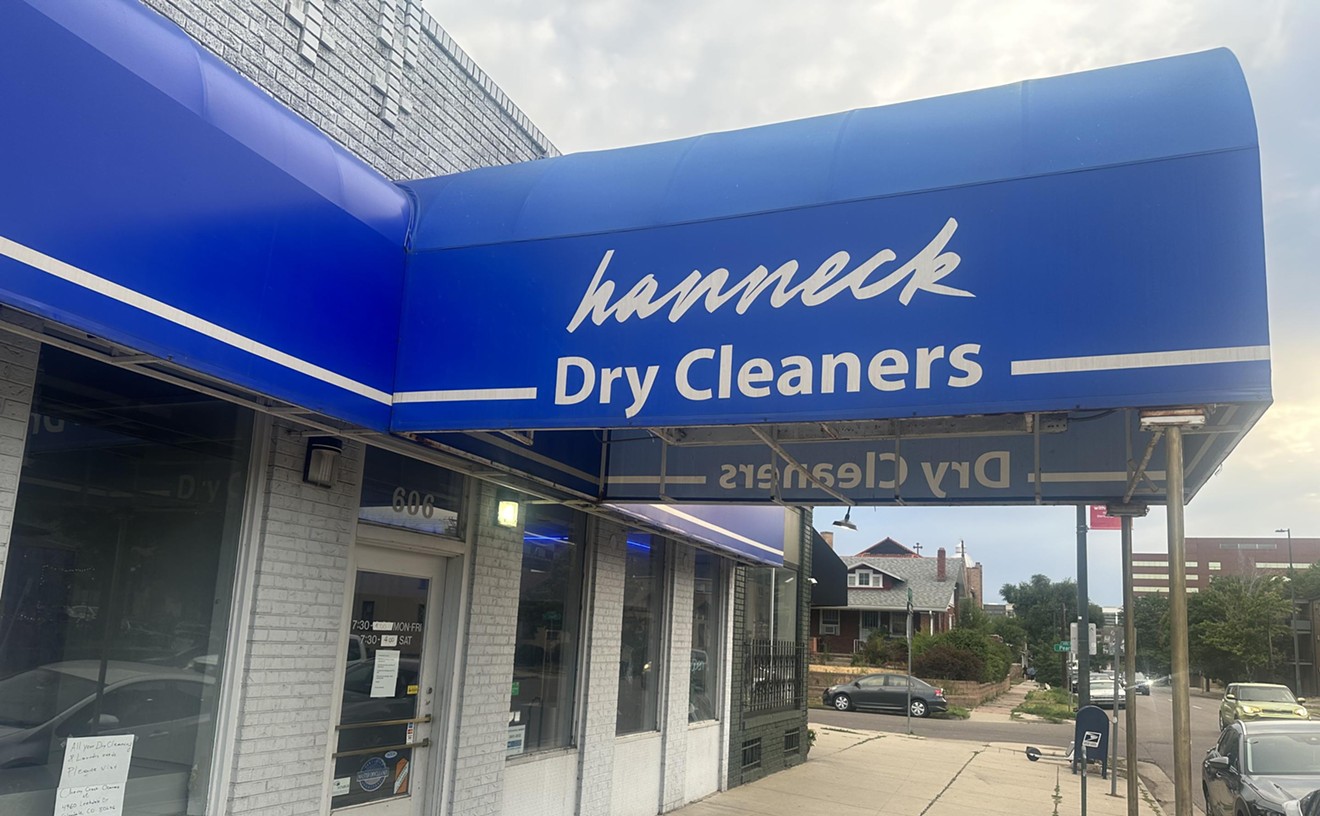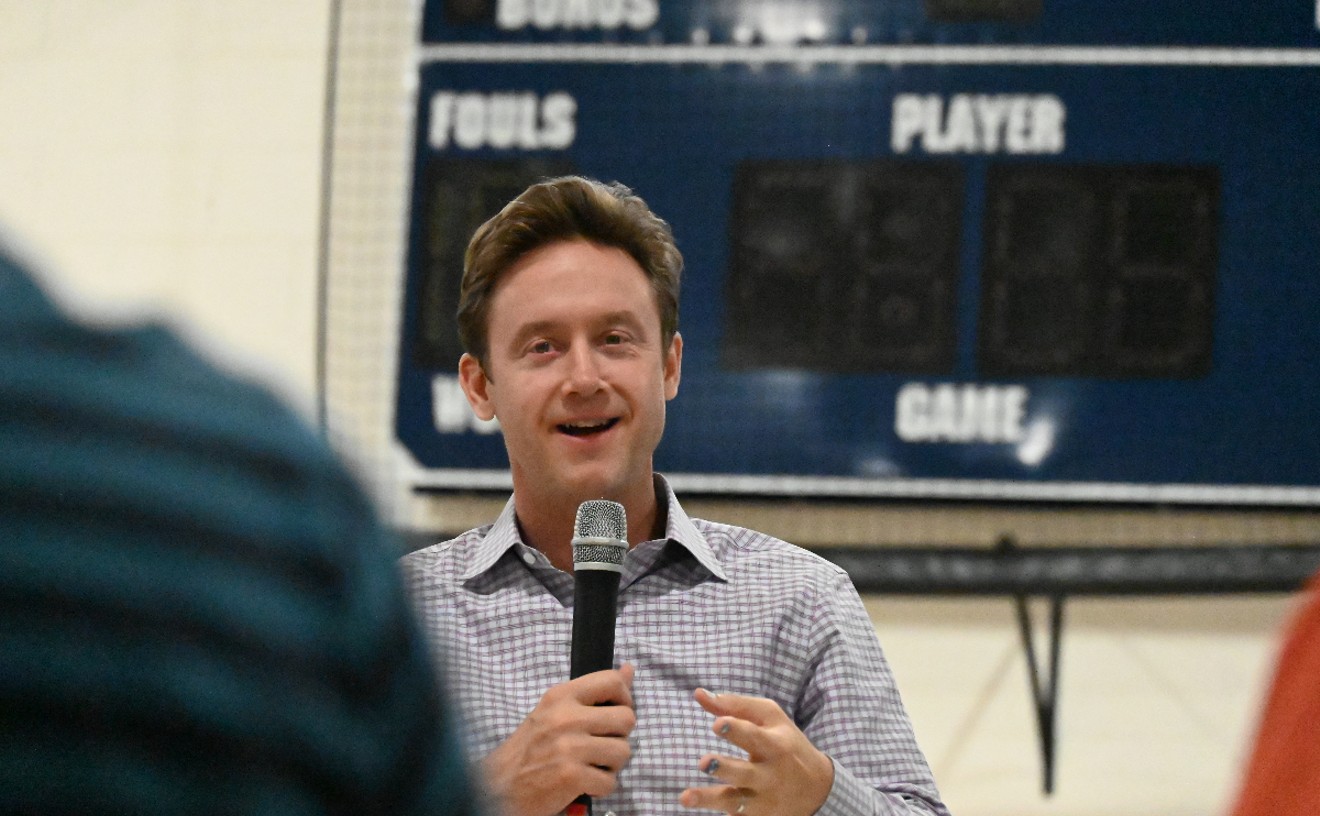Gambling aficionados who play blackjack, poker, craps and other games in Colorado are limited to wagering no more than $100 on a single bet. That's considerably higher than the $5 limit this state's voters initially approved when they voted to allow "limited-stakes gaming" in Cripple Creek, Central City and Black Hawk back in 1990.
In 2008, voters upped the ante on a single bet to $100.
And in coming years, gamblers may find that all bets are off: A proposal is in the works to allow the three mountain towns to remove the limit entirely.
"These towns have built much of their local economies around hotels, restaurants, tourism and travelers who visit because of gaming. Voters in these communities should be allowed to decide what is best for them and their economy, including whether they want to change betting limits and add new games," explains Bruce Brown, former mayor of Cripple Creek and a proponent of a new ballot initiative to allow just that.
Brown and former Colorado Senate president Bill Cadman are pushing to get Initiative 257 onto the November 2020 Colorado ballot. If approved, it would allow residents of the three casino towns to decide whether they want to remove the $100 limit on individual wagers and approve new games that aren't currently allowed.
Colorado is one of only two states that has limits on individual bets, Cadman and Brown point out. The other state with limits is South Dakota, where bets placed in the gambling town of Deadwood can be no more than $1,000.
"If [the three Colorado casino towns] choose to extend their limits and game options, the modest boost to revenue would be a win-win-win for all the businesses and employees in these small towns, the players who are asking for more gaming options, and the community colleges that receive the taxes," according to Cadman. (The initiative that upped the ante and expanded hours and games in 2008 also dictated that a portion of the revenue collected by the state from the gaming industry go to community colleges in Colorado.)
The initial 1990 proposal called for the state's take to help fund historic preservation — not just in the three historic mining towns where gambling would be allowed, but across Colorado. That provision remains, and since gambling was introduced in Colorado, more than $300 million has gone to historic-preservation projects across the state.
In order to get onto November's ballot, proponents of Initiative 257 will need to submit approximately 125,000 valid signatures by the beginning of August. Those signatures will have to represent at least 2 percent of the registered voters in each of Colorado's 35 Senate districts.
If the initiative does gain that support, makes the ballot and gets more than 50 percent of the vote, then starting May 2021 residents of the three casino towns can decide if they want to raise or even get rid of betting limits, and also whether to add new types of games, such as baccarat.
And those towns are ready.
"The City of Black Hawk is always in favor of gaming enhancements. As the gaming experience improves, it is more likely the original three host cities will continue to meet the demands of the gaming community," David Spellman, the mayor of Black Hawk, says.
Central City Mayor Jeremy Fey also supports the initiative, noting that it gives the towns more local control. (Milford Ashworth, the current mayor of Cripple Creek, did not return a request for comment.)
"If local voters choose to approve new games and betting limits, mountain casinos could attract higher-income Coloradans who would typically travel to other states to gamble, as well as out-of-state, high-stakes bettors visiting Aspen or Vail," suggests Karen Crummy, a spokesperson for the initiative.
When limited-stakes gaming got under way in October 1991, the stakes were definitely limited. The maximum bet was just $5; slots, blackjack and poker were the only games allowed; and casinos had to close from 2 a.m. to 8 a.m.
Then-Central City Mayor Bruce Schmalz was one of the original proponents of allowing gambling in the mountain towns. His son, Buddy Schmalz, who owns the Dostal Alley Casino and Brewery in Central City, has watched how gaming has grown over the past two decades.
"We started off with [our casino] in the basement of my parents' rock shop," Buddy Schmalz recalls. "That was kind of what we thought the direction was going to go. It became very clear that there were bigger operators out there that were willing to come in and invest hundreds of millions of dollars."
And come they did. Just a mile down the hill in Black Hawk, large casinos like the Ameristar, the Lodge and the Monarch began popping up, dwarfing the original mom-and-pop outfits.
In 2008, voters upped the ante and okayed maximum bets of $100. The 2008 initiative also let casinos operate 24/7 and added craps and roulette as acceptable game offerings.
With or without Initiative 257, Colorado's gaming industry is looking at massive changes. The state's legal sports betting market, approved by voters in November 2018, kicks off on May 1, allowing Coloradans to bet on their phones throughout the state and place bets in person at casinos in Black Hawk, Central City and Cripple Creek.
There is no limit on sports betting wagers.
Update: This story was updated at 5 p.m. February 20 to reflect that while most changes/additions to the Colorado Constitution require approval by more than 55 percent of the voters, repealing constitutional language requires approval by just over 50 percent.
[
{
"name": "Air - MediumRectangle - Inline Content - Mobile Display Size",
"component": "12017618",
"insertPoint": "2",
"requiredCountToDisplay": "2",
"watchElement": ".fdn-content-body",
"astAdList": [
{
"adType": "rectangle",
"displayTargets": "mobile"
}
]
},{
"name": "Editor Picks",
"component": "17242653",
"insertPoint": "4",
"requiredCountToDisplay": "1",
"watchElement": ".fdn-content-body",
"astAdList": [
{
"adType": "rectangle",
"displayTargets": "desktop|tablet"
},{
"adType": "rectangle",
"displayTargets": "desktop|tablet|mobile"
}
]
},{
"name": "Inline Links",
"component": "18838239",
"insertPoint": "8th",
"startingPoint": 8,
"requiredCountToDisplay": "7",
"maxInsertions": 25
},{
"name": "Air - MediumRectangle - Combo - Inline Content",
"component": "17261320",
"insertPoint": "8th",
"startingPoint": 8,
"requiredCountToDisplay": "7",
"maxInsertions": 25,
"watchElement": ".fdn-content-body",
"astAdList": [
{
"adType": "rectangle",
"displayTargets": "desktop|tablet"
},{
"adType": "rectangle",
"displayTargets": "desktop|tablet|mobile"
}
]
},{
"name": "Inline Links",
"component": "18838239",
"insertPoint": "8th",
"startingPoint": 12,
"requiredCountToDisplay": "11",
"maxInsertions": 25
},{
"name": "Air - Leaderboard Tower - Combo - Inline Content",
"component": "17261321",
"insertPoint": "8th",
"startingPoint": 12,
"requiredCountToDisplay": "11",
"maxInsertions": 25,
"watchElement": ".fdn-content-body",
"astAdList": [
{
"adType": "leaderboardInlineContent",
"displayTargets": "desktop|tablet"
},{
"adType": "tower",
"displayTargets": "mobile"
}
]
}
]












